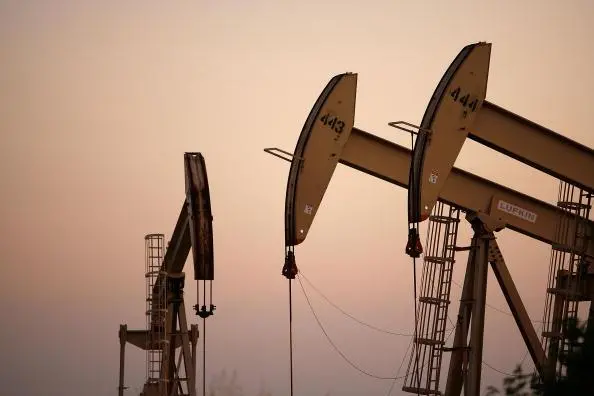PHOTO
- Oil prices drop despite extended supply cuts
- Asian shares edge higher in limited gains
- Most Middle East markets add gains
- Dollar and gold prices rise
Oil prices
Oil prices dropped early on Tuesday on indications that factory activity waned across much of Europe and Asia in June while growth in manufacturing cooled in the United States
Brent crude futures LCoc1 for September delivery were trading down 15 cents, or 0.2%, at $64.91 a barrel by 0311 GMT after dipping to $64.66 earlier.
U.S. crude futures for August CLc1 were down 25 cents, or 0.4%, at $58.84 a barrel, after touching their highest in over five weeks on Monday.
“The weaker PMI (purchasing managers’ index) prints killed sentiment overnight, and the market started to factor in the realm of the unknown around shale (oil), so (investors) were worried about the fear of oversupply in the face of weaker demand,” Stephen Innes, managing partner at Vanguard Markets in Bangkok, told Reuters.
However, the decision to extend production curbs would continue to support oil prices, as OPEC looked to maintain market equilibrium, he said.
The Organization of the Petroleum Exporting Countries (OPEC) agreed on Monday to extend oil supply cuts until March 2020. OPEC will meet Russia and other producers later on Tuesday.
Global markets
Asian shares edged higher on Tuesday, but weak global manufacturing activity limited gains.
MSCI’s broadest index of Asia-Pacific shares outside Japan added 0.41% but Chinese blue-chips dipped 0.05% and Korean shares lost 0.27%.
Overnight on Wall Street, the Dow Jones Industrial Average rose 0.44% to 26,717.43, the S&P 500 gained 0.77% to 2,964.33 and the Nasdaq Composite added 1.06% to 8,091.16.
Global shares had rallied strongly on Monday after the United States and China agreed on the weekend to restart trade negotiations aimed at resolving their year-long trade war and Washington said it would postpone further tariffs.
Middle East markets
Most stock markets in the region traded higher on Monday.
Saudi Arabia’s index was up 0.4% with banks leading gains. Al Rajhi Bank rose 0.9% and Arab National Bank climbed 2.9%.
Dubai's index rose 0.6% after registering a one-month high percentage gain in the last session. Banks were the biggest boost with a 1.2% rise in Dubai Islamic Bank and a 0.9% gain in Emirates NBD.
The Abu Dhabi index traded flat with market heavyweight First Abu Dhabi Bank shedding 0.3%.
Qatar's index rose 1% to climb for a third straight session. Qatar Islamic Bank was 1.8% higher and petrochemical maker Industries Qatar was up 1.7%.
The Egyptian stock exchange was closed for a holiday.
Kuwait’s premier market index rose 0.2 percent while Bahrain’s index rose 0.3 percent and Oman’s index dropped 0.2 percent.
Currencies
The dollar rose on Tuesday.
The dollar index .DXY, which measures the greenback against a basket of six major currencies, was up 0.5% at 96.809.
Precious metals
Gold prices also rose on Tuesday.
Spot gold was up 0.4% at $1,389.49 per ounce at 0111 GMT.
U.S. gold futures were up 0.2% at $1,391.70 an ounce.
Reporting by Gerard Aoun; Editing by Michael Fahy)
Our Standards: The Thomson Reuters Trust Principles
Disclaimer: This article is provided for informational purposes only. The content does not provide tax, legal or investment advice or opinion regarding the suitability, value or profitability of any particular security, portfolio or investment strategy. Read our full disclaimer policy here.
© ZAWYA 2019





















